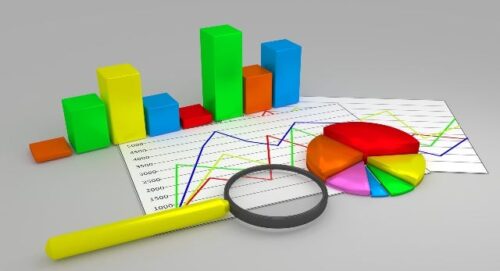THE RELATIONSHIP BETWEEN HUMAN CAPITAL AND ECONOMIC GROWTH
The Relationship Between Human Capital and Economic Growth
Understanding the Key Drivers of Economic Prosperity
Human capital, often referred to as the knowledge, skills, and abilities possessed by a workforce, plays a pivotal role in shaping the economic growth and development of nations. The relationship between human capital and economic growth is a complex interplay of factors that have far-reaching implications for the prosperity of a country. In this article, we delve into the critical aspects of this relationship, highlighting key points that underscore its significance.
1. Human Capital as the Engine of Economic Growth
Human capital is often considered the cornerstone of economic growth. A skilled and educated workforce enhances a nation’s productivity, innovation capacity, and adaptability to technological advancements. A country with a well-educated population is better equipped to harness the potential of emerging industries, thus driving economic growth.
2. Education and Training
Investments in education and training are vital in building human capital. A robust education system that provides equitable access to quality schooling and vocational training equips individuals with the skills necessary to thrive in the modern workforce. Higher levels of education are typically associated with higher earning potential, which can, in turn, contribute to overall economic growth.
3. Health and Well-being
Human capital extends beyond education and includes aspects of health and well-being. A healthy population is more productive and has a higher capacity to contribute to economic activities. Access to healthcare, nutrition, and a safe living environment are crucial components in developing a strong human capital base.
4. Technological Advancement and Innovation
A highly skilled workforce is instrumental in driving technological advancement and innovation. Innovation often leads to increased productivity, the development of new industries, and the creation of high-quality jobs, all of which are catalysts for economic growth.
5. Labor Market Dynamics
Labor market dynamics, including factors like labor force participation, unemployment rates, and wage levels, are intertwined with human capital. When individuals are well-trained and possess diverse skills, they are more adaptable to changing labor market conditions, reducing the risk of unemployment and underemployment.
6. Income Inequality and Human Capital
Income inequality can be both a cause and a consequence of disparities in human capital. Addressing disparities in access to education and training opportunities is crucial for reducing income inequality and ensuring that economic growth benefits all segments of society.
7. Government Policies and Investments
Government policies play a pivotal role in shaping the relationship between human capital and economic growth. Investments in education, healthcare, and labor market reforms can enhance human capital development and, in turn, promote economic growth.
8. Globalization and Human Capital
In an era of globalization, human capital can become a competitive advantage for nations. A highly skilled workforce can attract foreign investments and foster international trade relationships, further contributing to economic growth.
9. Challenges and Future Considerations
Challenges related to human capital development include addressing disparities in access to education and healthcare, adapting to rapidly evolving job markets, and ensuring that the education system remains relevant in an age of automation and artificial intelligence. Policymakers must also consider the impact of demographic shifts, such as aging populations, on human capital and economic growth.
In conclusion, the relationship between human capital and economic growth is a multifaceted and dynamic one. A well-educated, healthy, and skilled workforce is a driving force behind economic prosperity. Nations that prioritize investments in human capital development are better positioned to navigate the challenges of the modern world and foster sustainable economic growth that benefits all citizens. Recognizing the pivotal role of human capital is essential for shaping policies and strategies that promote inclusive and prosperous societies.


